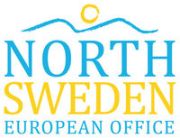
What strengths, weaknesses, opportunities and threats exist in attracting, retaining and reskilling for the green transition in sparsely populated areas? Through a live, interactive SWOT analysis by a panel of political, private and public sector representatives with the audience, this session will shed light on one of the main bottlenecks for the green transition in Europe's sparsely populated areas – skills and labour shortages. The aim is to exchange knowledge and to co-create solutions.
- Territorial | Local and regional | Neighbours (ENI + IPA + EFTA + UK) | Climate and environment | Demographics (depopulation and ageing) | Migration | Education and culture | Jobs and Employment
- Code: 10PL23572
- Jacques Delors building, Atrium 5
Practical information
- When
-
Tue 10/10/2023, 11:30 - 13:00 CET
- Where
- Jacques Delors building, Atrium 5
- Type of partnership
- NONE
- Format
- Participatory/Political lab
- Theme
-
Retaining talent for regional growth
- Language
- English
- Website
-
http://www.northsweden.eu
- Social media
-
@northswedeneuropeanoffice
@northsweden
@northswedeneuropeanoffice
Partner

Reporting
Session summary
(S) Strengths: Regions with vast natural resources, strong entrepreneurship and an industrial heritage
Areas of strength that both the panellists and the audience highlighted were the regions' access to natural resources, renewable energy and conditions for leading the green and digital transition. A high standard of living, strong innovative power and an industrial heritage were other factors highlighted.
Effie Kourlos also brought up Mittuniversitet's role in the region to attract people and create greater attractiveness and the strength of Nordic cooperation. Päivi Ekdahl, who represented the NSPA regions, also mentioned that a strength is the growing tourism industry and the attractiveness that comes with it.
(W) Weaknesses: Lack of infrastructure and geographic and demographic challenges
The biggest common denominator of weaknesses concerns the geographical and demographic challenges, linked to long distances, sparsely populated environments, an aging population and low immigration. Lack of infrastructure, issue of connectedness, lack of own capacity in the regions and lack of housing were other recurring challenges raised by the panel as well as the audience.
.
(O) Opportunities: To take the lead in the green transition and better market the region
The unique natural resources and the regions' potential for growth and to take the lead in the green transition permeated the discussions around opportunities.
Effie Kourlos drew attention and opportunities to take advantage of the increased interest in moving from the big cities and closer to nature that followed the Covid-19 pandemic.
Päivi Ekdahl also stressed the opportunities that exist to be taken advantage of when it comes to marketing the region better, both in her own country, in the EU and to the outside world.
(T) Threats: Labor and population shortages, housing needs and restrictive migration policies
Some of the threats jointly identified by the panellists are those that have arisen due to the recent security situation and circumstances – such as the Covid-19 pandemic and Russia's invasion of Ukraine. Morven Fancey had a different approach to threats linked to the Covid-19 pandemic. She highlighted how tourism in the region has increased after the pandemic, which is good but at the same time threatens the housing market for local residents. Another threat that both Päivi Ekdahl, Effie Kourlos and Ole Kolstad made clear was the lack of labor and people in the regions.
Effie Kourlos especially highlighted the importance of cooperation between the regions, so as not to "cannibalize" each other's workforce. It is not sustainable to attract people to come and work in one's own region if this in turn creates a labor shortage in another region, she pointed out. She also highlighted the problem with Sweden's restrictive migration policy when northern Sweden has such a large need for labor and the existing labor force in Sweden and the EU will not be enough for the enormous demand that exists in northern Sweden.
The concepts most prominent from the audience were lack of funding, geopolitical changes, lack of cohesion and climate change.
Finally, the panel had the chance to discuss what actions are now needed to support these regions based on the results of the SWOT analysis. The panelists agreed that cooperation between the regions must continue and be strengthened – common challenges require common solutions. Effie Kourlos also mentioned the importance of creating and communicating a positive vision, which is shared by the board and residents of the region, in order to make the regions more attractive to the local population as well as to new residents.



